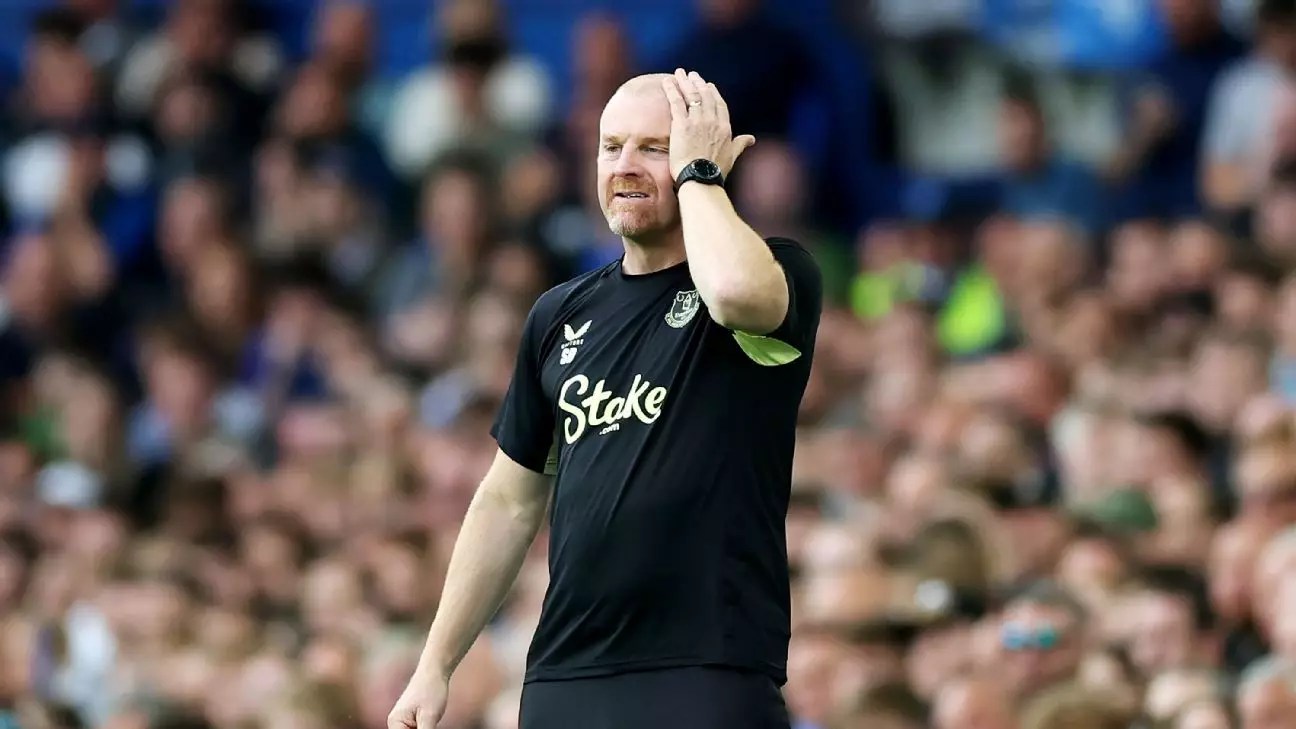Everton Football Club, with its rich history and passionate fanbase, is navigating a particularly challenging chapter. As the club faces instability both on and off the field, the recent announcement of a proposed takeover by the Texas-based Friedkin Group has sparked cautious optimism among supporters. Sean Dyche, the club’s manager, has pointed to this transition as a potential source of stability, which is desperately needed after a tumultuous period marked by inconsistent performances and management challenges.
Dyche’s optimism, however, comes with a stark reminder of the difficulties that lie ahead. He acknowledged that while the initial indicators of the Friedkin Group’s takeover appear promising, the journey is far from over. “There is a long way to go to get everything to a final point,” he remarked, underscoring the precariousness of the current situation. The club has been characterized by a whirlwind of varying opinions on its direction, creating an atmosphere that, for too long, has felt unsettled.
Everton’s struggles extend beyond ownership turmoil. Financial woes have plagued the club, with over £800 million spent in recent years failing to yield the desired results on the pitch. The ongoing crisis in form has seen the team collecting a mere single point from five games at the beginning of the 2024-25 season, a performance that places them perilously close to the relegation zone—a position no nine-time Premier League champions aspire to occupy. To compound matters, a disastrous start has already seen them exit the Carabao Cup prematurely, adding to the sense of urgency permeating the club.
With only goal difference separating Everton from the last place, the stakes have never been higher. The looming danger of relegation—an outcome that would shatter the club’s proud status in English football—seems all too real. Dyche’s previous experience steering the club to safety amid the backdrop of financial deductions for rule breaches offers a glimmer of hope, but it is a reminder that the obstacles presented by the financial landscape of modern football are daunting.
As the negotiations with the Friedkin Group unfold, fans are met with a sense of cautious enthusiasm. The group’s ownership of AS Roma and their investments across various sectors, including automotive and entertainment, hint at the resources they could bring to bolster Everton’s ambitions. Despite the potential benefits of new ownership, supporters remain tightly tethered to a history of failed takeover attempts. Previous interest from other parties, like 777 Partners and John Textor, only adds to the wariness.
Dyche’s response to all this uncertainty is one of steady resolve, focusing on the present rather than the swirling winds of change. “Until I know more about [the takeover talks], my situation doesn’t change,” he stated, demonstrating a level of professionalism that is necessary during turbulent times. His commitment to elevating on-pitch performance remains steadfast, despite the heavy burdens the club is currently shouldering.
As Everton’s loyal fanbase watches this saga unfold, a collective sense of hope is tinged with skepticism. The new era under the Friedkin Group could usher in a much-needed transformation, yet real change necessitates a comprehensive strategy addressing both financial realities and competitive aspirations. The club must also look internally to identify the root of its performance issues on the field, utilizing Dyche’s leadership to galvanize a squad desperate to turn the tide.
Ultimately, the road ahead for Everton is fraught with challenges, but the prospect of positive change looms large. Stability, as desired by Dyche, can only be achieved through a collaborative effort—one that unites management, players, and fans alike. Should the Friedkin Group complete their takeover and initiate a fresh strategy focused on both stability and ambition, Everton could very well reestablish itself in the upper echelons of English football, rekindling the pride that its vibrant legacy deserves.


Leave a Reply